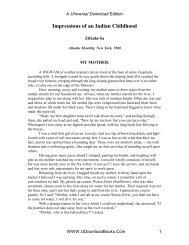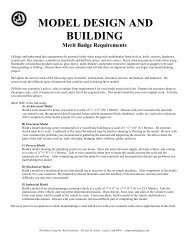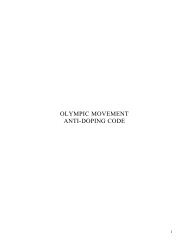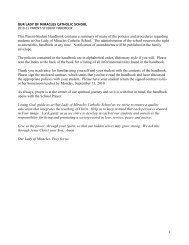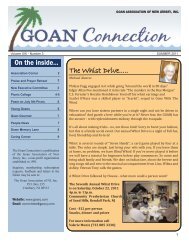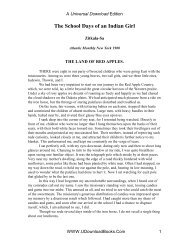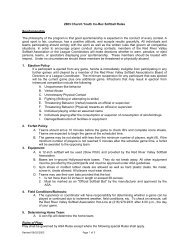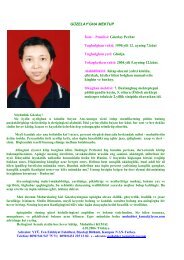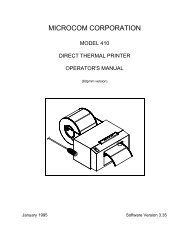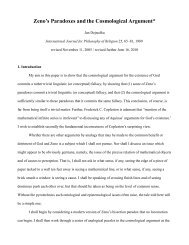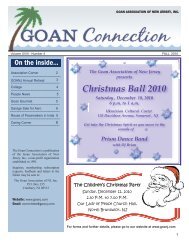Dummett's Backward Road to Frege and to Intuitionism - Tripod
Dummett's Backward Road to Frege and to Intuitionism - Tripod
Dummett's Backward Road to Frege and to Intuitionism - Tripod
You also want an ePaper? Increase the reach of your titles
YUMPU automatically turns print PDFs into web optimized ePapers that Google loves.
that even appears <strong>to</strong> resemble Dummett’s program is the option—I say again, option—of defining<br />
“F( )” extensionally. But even this would be impossible unless the senses of the object-names were<br />
explicated first.<br />
How could a language come in<strong>to</strong> being at all? Could it be by our first collecting the truth-<br />
conditions for all or some of the statements <strong>and</strong> grasping the two truth-values, <strong>and</strong> then deriving the<br />
references <strong>and</strong> thereby the senses expressed by subsentential expressions?<br />
I think <strong>Frege</strong> would hold that children learn the senses of subsentential expressions of their<br />
language not by being h<strong>and</strong>ed two truth-values plus the bundle of truth-conditions for all or some<br />
sentences of that language <strong>and</strong> being <strong>to</strong>ld <strong>to</strong> go figure out all the subsentential references <strong>and</strong> thereby<br />
the subsentential senses (they would not even underst<strong>and</strong> what they were h<strong>and</strong>ed, much less the<br />
instruction), but by being given pre-linguistic explications of names of perceived objects, followed by a<br />
process of comparing those objects <strong>and</strong> abstracting imperceptible concept-senses <strong>and</strong> concepts. 14 And<br />
sense-perception is intensional in sense (2). Of course, the children would not use these senses as<br />
linguistic senses at first, <strong>and</strong> in that functional sense, these senses would not yet be linguistic senses,<br />
i.e., they would not yet be expressed by any names. They would still be mere modes of cognitive<br />
presentation, <strong>and</strong> would become linguistic senses containing modes of presentation only when used in<br />
language according <strong>to</strong> the context principle. I think that is the essential role of the principle, <strong>and</strong> the<br />
difference which <strong>Frege</strong> is concerned <strong>to</strong> distinguish between a sense <strong>and</strong> the mode of presentation it<br />
contains, pace Dummett (1981: 227). 15<br />
The problems with Dummett’s program seem so obvious <strong>and</strong> so many that it is natural <strong>to</strong><br />
wonder if I unders<strong>to</strong>od it correctly. In particular, I am criticizing what might be called the pure, ideal,<br />
or radical backward road, <strong>and</strong> insisting that Dummett adhere rigorously <strong>to</strong> it. But Dummett does not<br />
take the pure backward road. He says we are <strong>to</strong> take that road only “[a]s far as possible” (1995: 16). He<br />
assumes knowledge of the truth-values. I concede that this objection is a fair one. Pure or ideal theories<br />
24




